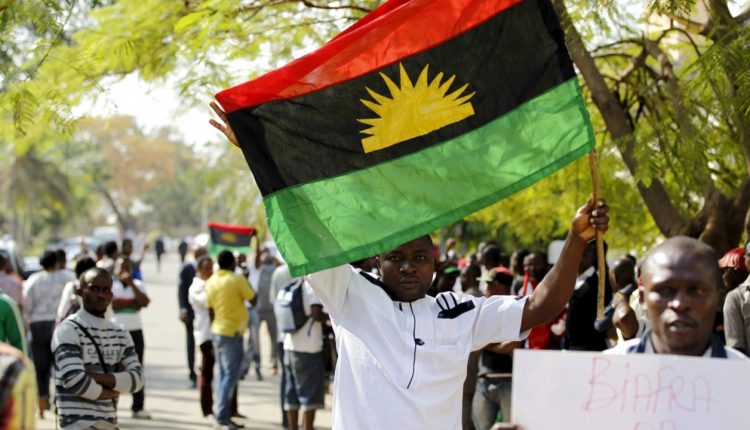1.1K
By Myke Agunwa, Abuja
The Indigenous People of Biafra (IPOB) has thrown its full support behind the recent decision of the United States government to designate Nigeria as a “Country of Particular Concern” (CPC) over alleged violations of religious freedom, describing the move as a “moral victory” for justice, truth, and the sanctity of human life.
The separatist group’s endorsement comes amid a wave of international reactions including posts by former U.S. President Donald Trump and several members of Congress calling attention to what they described as “worsening religious persecution and ethnic violence” in Nigeria.
In a post on his Truth Social platform, Trump said, “Christianity is facing an existential threat in Nigeria. Radical Islamists are responsible for this mass slaughter. I am hereby making Nigeria a ‘Country of Particular Concern.’”
He added, “The United States cannot stand by while such atrocities are happening in Nigeria and numerous other countries. We stand ready, willing, and able to save our great Christian population around the world.”
Echoing Trump’s sentiment, U.S. Congressman Riley Moore (R-W.Va.) posted on X (formerly Twitter):
“Christians are being persecuted and killed in Nigeria for professing their faith in our Lord and Savior, Jesus Christ. The killings must stop. That’s why I’m urging the State Department to designate Nigeria as a Country of Particular Concern.”
Similarly, Senator Ted Cruz (R-Texas) introduced a bill urging accountability for Nigerian officials complicit in religious violence, describing the situation as “a crisis of religious genocide.”
Reacting to the development, IPOB’s spokesperson Emma Powerful, in a statement issued on Saturday, hailed the U.S. government for recognizing what it called “the persistent persecution and state-enabled killings” in Nigeria, particularly in the South-East.
“The Indigenous People of Biafra (IPOB), under the able leadership of our supreme leader, Mazi Nnamdi Kanu, warmly welcomes the recent designation of Nigeria as a Country of Particular Concern by the government of the United States,” the statement read.
IPOB noted that the U.S. decision followed an earlier ruling by a Canadian court which, it claimed, had designated Nigeria’s major political parties, the All Progressives Congress (APC) and the Peoples Democratic Party (PDP), as “terror-enabling organizations.”
The group expressed gratitude to former President Trump, Senator Cruz, and other U.S. legislators and activists for “their courageous advocacy in exposing the truth about Nigeria’s systemic persecution and state-sponsored killings.”
“This recognition is not merely symbolic; it represents a moral victory for justice, truth, and the sanctity of human life. By calling out the Nigerian state’s complicity in ethnic and religious violence, the international community has helped save countless lives that would otherwise have been lost to orchestrated insecurity and genocidal attacks,” IPOB stated.
However, the group maintained that the designation alone was insufficient, calling for a comprehensive international inquiry into what it termed “persistent ethno-religious killings and insecurity” in the South-East.
“There remains an urgent need for an independent international investigation into the root causes of these killings to unmask the perpetrators, financiers, and political enablers behind these heinous acts,” the statement continued.
IPOB also lauded the efforts of diaspora advocacy groups such as American Veterans of Igbo Descent (AVID) and Ambassadors for Self-Determination and Rising Sun, crediting their lobbying efforts in Washington for drawing attention to the plight of persecuted communities in Nigeria.
“We salute the unyielding courage of all Biafrans and friends of Biafra worldwide who have continued to speak against tyranny, impunity, and the ongoing genocide against our people and Northern Nigeria’s Christian communities. History will remember your courage,” IPOB added.
The group concluded that the U.S. designation marks “a turning point” in global recognition of Nigeria’s human rights situation, asserting that the move will “pave the way for justice and relief for victims of state violence in the South-East and Middle Belt.”



